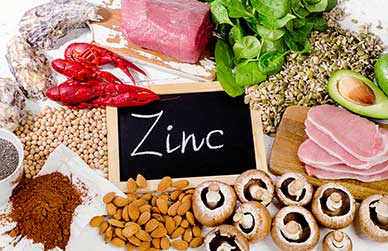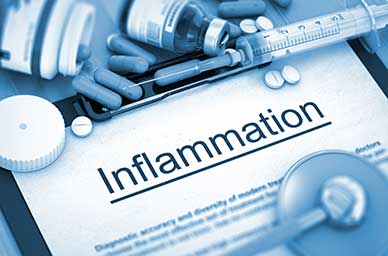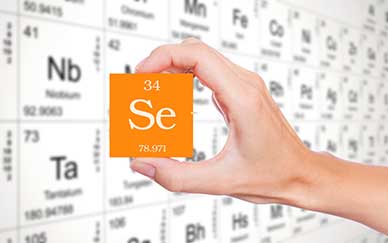Do you get enough zinc in your diet? Research on the link between zinc and DNA repair suggests that this metal may be more important to human health than previously thought.
If you are like many people in the United States and Europe, you may not be getting enough zinc in your diet. While most people know about the health benefits of vitamin C and iron, zinc is more of an unsung hero. However, new research on zinc and DNA suggests that you should be very concerned about whether you are getting enough of this trace metal in your diet and supplement regimen.
Zinc and Your Health
Although zinc is not generally one of the rock star vitamins you read about in the popular media, it is very important to human health. Zinc plays an important role as a cofactor in many of the biochemical processes that drive your metabolism. In addition, zinc helps to support a healthy immune system and fight the damage associated with aging. Perhaps most important, zinc is essential in human growth and development, making it especially important for pregnant women and children to get enough of this trace metal.
Zinc is available in many of the whole foods. However, the standard Western diet is deficient in these whole foods, leaving many people at risk of a zinc deficiency.
Zinc and DNA Repair
While doctors and scientists have always recognized that zinc is important for a healthy life, new research suggests that it may be even more crucial than we previously thought. According to recent studies, even a small increase in dietary zinc reduces DNA damage, which can potentially slow aging and even lower the risk of diseases such as cancer. It appears that zinc and DNA repair are deeply intertwined, with zinc playing an important role in critical genetic repair processes and also reducing oxidative stress on cells.
If you think you are not getting enough zinc in your diet, even a small supplement can make a huge difference. These studies found that a small boost in zinc levels can make a huge difference in how quickly the DNA in your cells deteriorates. This small boost can help you fight off a cold and even lower your risk of cardiovascular disease and promote healthy cell growth.
Zinc for Cell Repair and So Much More
The link between zinc and DNA repair is important because so many chronic diseases have been linked to deficient DNA. As we age, our DNA accumulates errors and mutations. While our bodies have mechanisms to slow this damage, we all ultimately succumb to it. DNA damage has been linked to diverse diseases, including many of those that we associate with old age. Zinc is especially important in helping to facilitate DNA repairs. On the other hand, low zinc levels can lead to cells aging and developing chronic diseases at younger ages. This is partially due to the role of “zinc fingers” in DNA replication and repair. Zinc fingers are a compound made of zinc that bind to DNA and help control when it divides.
 Ultimately, a healthy body requires a variety of different nutrients to achieve optimal health. However, the Western diet tends to be deficient in these nutrients, contributing to the epidemic of chronic disease that currently is overtaking many developed nations. While we have ample access to a variety of foods, many people cannot or simply do not get the zinc they need to protect their DNA.
Ultimately, a healthy body requires a variety of different nutrients to achieve optimal health. However, the Western diet tends to be deficient in these nutrients, contributing to the epidemic of chronic disease that currently is overtaking many developed nations. While we have ample access to a variety of foods, many people cannot or simply do not get the zinc they need to protect their DNA.
Are You Getting Enough Zinc?
Many people are unknowingly not getting enough zinc in their diets, which is unfortunate in light of new knowledge about the link between zinc and DNA repair. The best food source of zinc is oysters. Zinc is also present in large amounts in crab, lobster and other shellfish. However, even if you do not have access to seafood, there are still ways to ensure you get enough zinc. Beef is a good source of this trace metal, as is chicken, yogurt and beans. If you are not eating enough of these foods, a supplement containing zinc can also help you to get enough of this nutrient to prevent DNA damage and immune dysfunction.
Eating a well-rounded diet is important not just because of macronutrients such as protein, but also because of micronutrients such as zinc. We need to have healthy levels of a variety of nutrients in order to enjoy good health over a long lifetime. If you fear you are not getting enough of zinc or other trace elements, ask your doctor whether a multivitamin is the right choice for your long-term well-being.
 If you suspect you may be low on magnesium, you are not alone. Experts estimate that around one in 50 people in the Western world is seriously deficient in this mineral. Magnesium can be found in a
If you suspect you may be low on magnesium, you are not alone. Experts estimate that around one in 50 people in the Western world is seriously deficient in this mineral. Magnesium can be found in a  Doctors have long known that supplementing with this natural plant compound can help to protect against certain cardiovascular concerns which can eventually lead to devastating heart attack or stroke. In addition, it can
Doctors have long known that supplementing with this natural plant compound can help to protect against certain cardiovascular concerns which can eventually lead to devastating heart attack or stroke. In addition, it can  There are
There are  According to researchers, fatty acids affect our bodies in a variety of positive ways. First, they are a good source of the fatty building blocks needed to myelinate nerve cells. Myelin acts as an insulator for nerve cells so they can send signals more rapidly. While we are young, we are still building new neural connections (and myelinating them!) so supplements containing omega 3 for children can be of huge benefit.
According to researchers, fatty acids affect our bodies in a variety of positive ways. First, they are a good source of the fatty building blocks needed to myelinate nerve cells. Myelin acts as an insulator for nerve cells so they can send signals more rapidly. While we are young, we are still building new neural connections (and myelinating them!) so supplements containing omega 3 for children can be of huge benefit. Having low selenium levels not only increases your risk of liver cancer, but it also increases your risk of death by any type of cancer. Scientists have also observed that selenium-rich geographical regions have lower cancer rates on average. Not very much research has been done yet on specific cancers as they relate to selenium intake. One study done in the Netherlands found that
Having low selenium levels not only increases your risk of liver cancer, but it also increases your risk of death by any type of cancer. Scientists have also observed that selenium-rich geographical regions have lower cancer rates on average. Not very much research has been done yet on specific cancers as they relate to selenium intake. One study done in the Netherlands found that  In medications, as in comedy, timing may indeed be an important factor in how we respond to treatments that both make us more comfortable and extend our lifespans.
In medications, as in comedy, timing may indeed be an important factor in how we respond to treatments that both make us more comfortable and extend our lifespans.